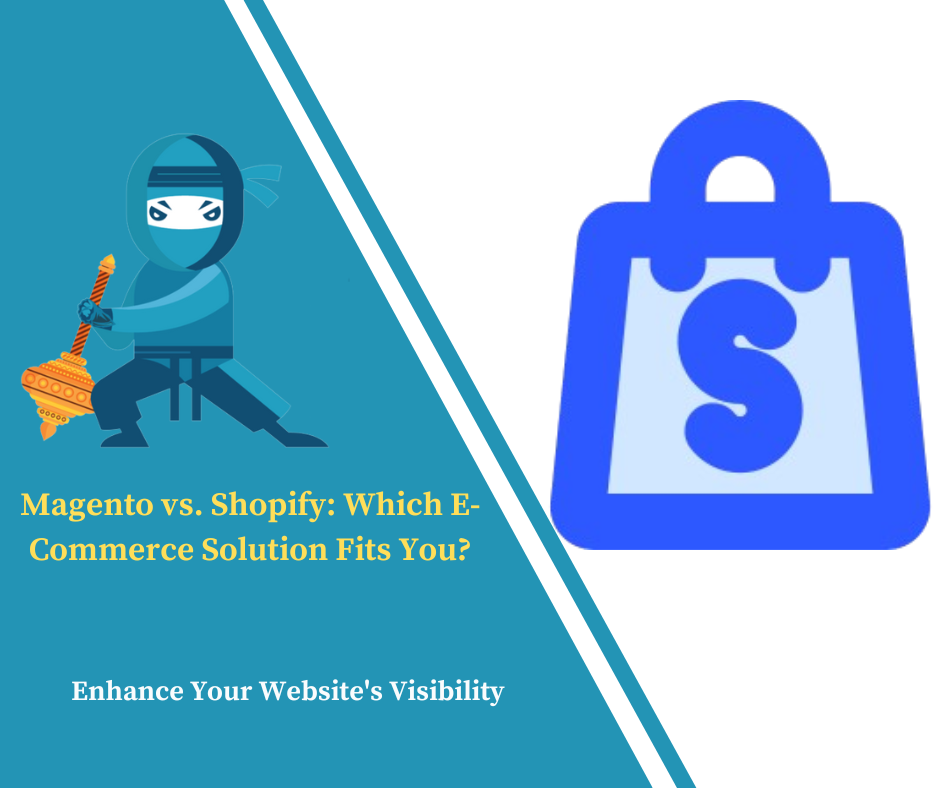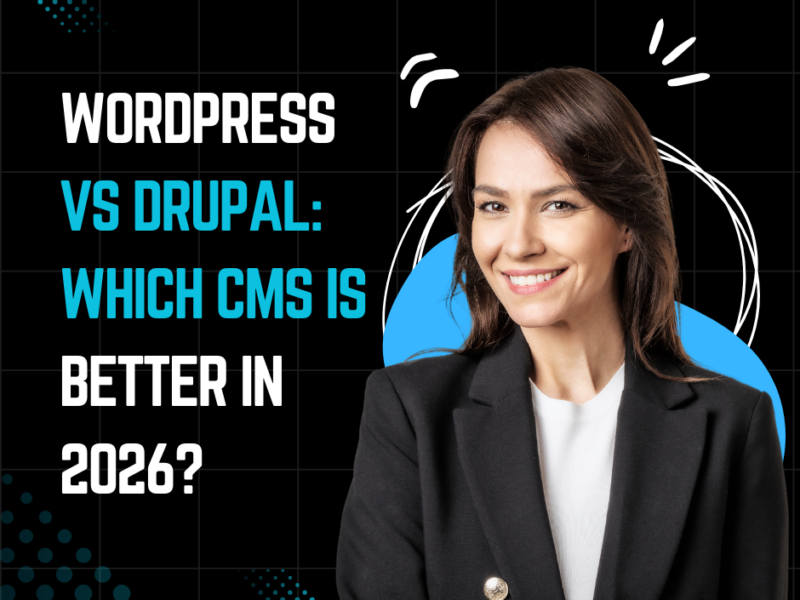Magento vs.Shopify: Which E-Commerce Solution Fits You?
In today’s digital marketplace, choosing the right e-commerce platform can significantly impact your online business’s success. Among the many options available, Magento vs. Shopify frequently emerges as a hot topic among entrepreneurs and developers alike. Each platform has its strengths, weaknesses, and unique features. This article will delve into the key differences, advantages, and disadvantages of Magento and Shopify to help you decide which e-commerce solution fits your business needs.
Overview of Magento vs.Shopify
What is Magento?
Magento is an open-source e-commerce platform owned by Adobe. Renowned for its flexibility and scalability, it is ideal for medium to large businesses that require a high level of customization. With a powerful suite of tools and features, Magento allows businesses to create a unique online shopping experience. However, it also demands a certain level of technical knowledge, making it less user-friendly for beginners.
What is Shopify?
Shopify, on the other hand, is a hosted e-commerce platform designed for ease of use. It is perfect for small to medium-sized businesses looking for a straightforward way to set up and manage an online store. Shopify’s intuitive interface and a wide variety of templates make it accessible even for those without technical expertise. The platform handles hosting, security, and updates, allowing business owners to focus on their products and sales.
Key Features Comparison
1. Ease of Use
When comparing Magento vs. Shopify, ease of use is a significant factor.
Magento: Although Magento offers powerful tools, its complexity can be overwhelming for beginners. Setting up and managing a Magento store often requires technical skills, such as coding and web development knowledge. This can make it less accessible for non-technical users.
Shopify: In contrast, Shopify is known for its intuitive interface. Users can easily set up their online store without prior technical expertise. Shopify provides a step-by-step setup process and offers excellent customer support, making it ideal for beginners.
2. Customization and Flexibility
Customization is another critical aspect of the Magento vs. Shopify debate.
Magento: Magento shines in its ability to provide extensive customization options. With its open-source nature, developers can modify the code to create a unique online store tailored to specific business requirements. This flexibility makes Magento a top choice for businesses with specific needs that standard platforms may not accommodate.
Shopify: While Shopify offers various themes and apps for customization, its flexibility is somewhat limited compared to Magento. Users can create a visually appealing store, but deeper customizations may require additional coding or third-party applications.
Also read: Shopify vs. WooCommerce: Which E-Commerce Platform Is Best?
3. Cost Considerations
Understanding the costs associated with each platform is vital when deciding between Magento vs. Shopify.
Magento: As an open-source platform, Magento itself is free to download and use. However, costs can accumulate due to hosting fees, development expenses, and ongoing maintenance. Depending on the complexity of your online store, expenses can range from a few hundred to several thousand dollars.
Shopify: Shopify operates on a subscription model, with monthly fees ranging from $39 to $399, depending on the plan chosen. While it may seem more expensive upfront, Shopify’s all-in-one solution includes hosting, security, and support, which can save you money in the long run.
4. Scalability
Scalability is essential for businesses aiming for growth.
Magento: Magento excels in scalability. Its architecture can handle large volumes of products and traffic, making it suitable for businesses anticipating significant growth. Customization options also allow businesses to adapt the platform to their evolving needs.
Shopify: While Shopify can support growing businesses, it may have limitations when scaling up. Higher-tier plans offer more features, but businesses with high traffic or complex needs may eventually outgrow Shopify’s capabilities.
5. SEO and Marketing Tools
An effective e-commerce platform should provide robust SEO and marketing tools.
Magento: Magento offers comprehensive SEO capabilities, allowing users to optimize their online store for search engines. It supports URL rewrites, meta tags, and sitemaps, giving businesses a solid foundation for SEO.
Shopify: Shopify also provides essential SEO features, but it may lack some advanced functionalities present in Magento. However, Shopify’s built-in marketing tools, such as email marketing integrations and social media connectivity, make it easier to promote your store.
6. Customer Support
When considering Magento vs. Shopify, customer support is another critical aspect to examine.
Magento: As an open-source platform, Magento has a community forum and documentation for support. However, official customer support is limited, and businesses often rely on third-party developers for assistance.
Shopify: Shopify offers 24/7 customer support through various channels, including live chat, email, and phone. This extensive support network can be invaluable for businesses needing quick assistance.
When to Choose Magento vs. Shopify
Choose Magento if:
1. You require extensive customization and scalability for a large online store.
2. You have a dedicated IT team or are willing to invest in development resources.
3. Your business has complex needs, such as specific integrations or custom features.
4. You aim to build a long-term, high-traffic online store that demands robust performance.
Choose Shopify if:
1. You are a small or medium-sized business looking for a straightforward solution.
2. You want to launch your online store quickly without extensive technical knowledge.
3. You prefer a user-friendly interface and excellent customer support.
4. Your business is not overly complex, and you can operate effectively within Shopify’s limitations.
FAQ
Is Magento better than Shopify?
It depends on your business needs. Magento offers extensive customization and scalability, making it suitable for larger businesses, while Shopify provides a user-friendly experience for small and medium-sized businesses.
Can I switch from Shopify to Magento?
Yes, you can switch from Shopify to Magento, but it requires careful planning and data migration to ensure a smooth transition. Consider working with a developer experienced in both platforms to facilitate the process.
Are there any hidden fees with Shopify?
Shopify has a transparent pricing model, but there may be additional fees for third-party payment gateways and certain apps. Always review the pricing details to understand all potential costs.
Which platform is more secure, Magento vs. Shopify?
Both platforms offer robust security measures, but since Shopify is a hosted solution, it generally has built-in security features that handle updates and maintenance. Magento users must ensure they maintain their security protocols.
Can I customize my Shopify store like Magento?
Shopify allows customization, but it is more limited compared to Magento’s extensive capabilities. If advanced customization is crucial for your store, Magento may be the better choice.
Conclusion
In the debate of Magento vs. Shopify, the right choice ultimately depends on your business’s specific needs and resources. Magento shines in customization and scalability, making it ideal for larger businesses with complex requirements. Shopify, with its user-friendly interface and strong support, is perfect for small and medium-sized businesses seeking a hassle-free e-commerce experience.
As you consider your options, evaluate your business goals, technical capabilities, and budget to determine which platform aligns best with your vision for success.








